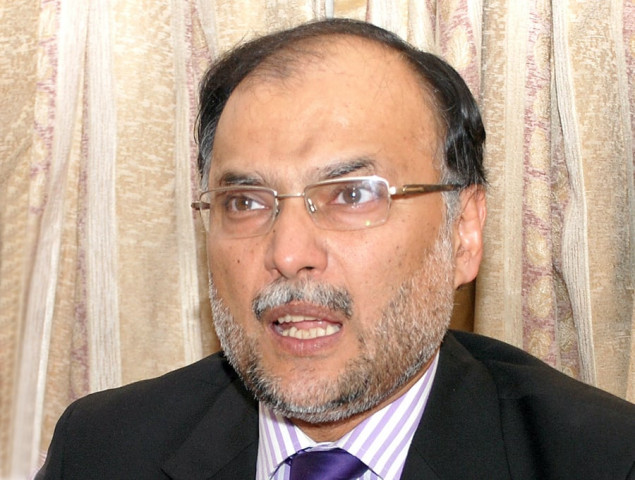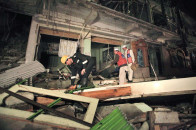Regional integration can help reduce poverty, say experts
Around 40 per cent of world’s poor live in South Asia

PHOTO: ZAFAR ASLAM/EXPRESS
They shared these views at the inaugural plenary of a three-day 18th Sustainable Development Conference titled “Securing peace and prosperity” that began here on Tuesday. Minister for Planning Development and Reforms Ahsan Iqbal said that the region was home to the poorest, malnourished people and those without access to education. He said that both Pakistan and India could help achieve peace and prosperity in the region through cooperation.
“The world we live in is witnessing unprecedented changes in human history, and therefore this period required a matching response,” the minister said.
Iqbal said that one of the major challenges that the country was facing was climate change.
“The region which covers five per cent of world’s land, is home to 20 per cent of the world’s population” he added.
The SDPI Board of Governors Chairperson, Ambassador Shafqat Kakakhel said that the agenda of sustainable development in South Asia could only be achieved through economic cooperation and regional integration.
“It is necessary for governments and other stake holders to not only achieve economic development but adopt an inclusive approach towards combating poverty,” he said.
“The meeting is being carried out in the backdrop of Vision 2025, which is truly the defining challenge of our age,” Kakakhel said.
The SDPI Executive Director, Dr Abid Qaiyeum Suleri said that something as sinister and lethal as change in climate had become a reality, and in this backdrop there was a need for South Asia to get in peace with itself.
He said that today each country in South Asia was more integrated with some other state than with its immediate neighbour, and going back to the level of integration and coordination that existed in the colonial times had never been more difficult.
“It is in this context that we have to look at the role of South Asian Association for Regional Cooperation (Saarc) and other regional cooperation mechanisms,” Suleri said.
“It [SAARC] can no longer run as a club of countries who are in it just because they share borders with each other,” he added. Suleri said the theme of the conference was initially selected to echo the Saarc agenda of securing peace and prosperity both at national and regional level.
He said that peace could not be kept by force hence cooperation was the key to achieve lasting peace and prosperity in the region.
Published in The Express Tribune, December 9th, 2015.



















COMMENTS
Comments are moderated and generally will be posted if they are on-topic and not abusive.
For more information, please see our Comments FAQ